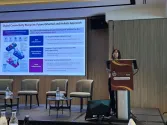
M&A not the only route to enter Asia’s financial markets: expert
Asia Pacific sellers are faring worse than their global peers post-acquisition, according to a report by PwC.
Amidst the uncertainty of market conditions, business strategies often lead to mergers and acquisitions (M&A) to keep its fundamentals afloat.
Particularly with financial institutions, M&A activity has become “tepid” in the first quarter of the year, according to S&P Global Ratings. “Asia-Pacific reported 13 banking sector M&A deals in the first quarter, compared with 15 in the prior-year period, according to Market Intelligence data,” S&P said in a market report.
PwC offers another perspective, pointing out how M&A activity has been in an upward trend in the past 16 years.
“Private Equity’s (PE) growing influence in driving M&A in Asia Pacific is reflected by PE involvement more than tripling to almost 40% of all deals,” PwC said in its report, titled “Delivering Deals in Disruption: Value Creation in Asia Pacific.”
However, it remains to be a “double-edged sword.” Not all deals are made equal. Globally, 53% of buyers and 57% of divestors underperformed their industry peers in the 24 months following the completion of their last deal.
In Asia Pacific, these figures were 41% and 63% respectively, with Asia Pacific sellers faring the worst compared to global peers.
Fintech rising
Sector-specific trends, accelerated by the pandemic, are evident, such as the digitisation of financial services and the growing adoption of digital currencies and e-wallets.
A report prepared by Nan Dong, Hong Kong director of Brunswick Group, an advisory firm, states that the lag in the first three months of the year for M&A was a continued trend from the latter half of 2022.
This was attributed to geopolitical instability, rising interest rates, volatile capital markets, supply chain disruptions, and regulatory changes.
“Despite this decline, Asia Pacific’s share of global deal value increased from 23% in 2021 to 25% in 2022, while its share of global deal volume dropped from 32% in 2021 to around 30% in 2022,” Dong wrote in the report.
Despite the looming challenges in these markets, banking and finance companies must choose wisely on which blueprint they must follow.
Jon Rowell, Asia and Caribbean leader at FTI Consulting, said that the varying regulatory frameworks across the region are one of the many challenges that business and financial firms face.
In particular, he noted regulatory differences have significant implications for the firm’s financial clients, especially those engaged with cross-border operations.
Organisations now seek specialised consulting services to tackle complex challenges. Hence, the institution’s aim is to continuously advance in solutions to help clients meet those challenges.
Rowell said FTI Consulting, known for its expertise in M&A, business transformation, restructuring, disputes, risk management, and reputation management, has expanded its services to encompass artificial intelligence, cybersecurity, and information governance.
“Understanding the regulatory enforcement landscape is crucial for financial clients to mitigate compliance risks effectively,” Rowell told Asian Banking and Finance in an exclusive interview.
In light of the digitalisation of global financial practices, it continues to be an advantage for businesses to adapt to future needs. Financial technology (fintech) has revolutionised how humans transact, thus, turning into the inevitable future of the financial industry.
“The ongoing digitisation of financial services and money creates opportunities to build more inclusive and efficient financial services and promote economic development. Whilst fintechs in other regions are facing a more challenging environment, Asia’s fintech space continues to see significant funding as investors look to tap this expanding market,” Rowell said.
Upkeep of financial businesses
The risk of financial institutions exiting or entering markets is a balancing act. And even then, deciding to follow a pattern may result in a different outcome.
“M&A is no longer the only route to enter selected Asian markets,” asserted Rowell.
As an example, Rowell noted how international financial institutions enter Hong Kong and opt to apply for a new virtual banking licence. These institutions would leverage innovative technology to lure deposits.
On the other hand, acquiring family-run banks with a lump of scarcity premium was the ideal strategy for businesses to enter back in the mid-2010s.
Rowell further explained that new regulatory frameworks arising from technological advancements and innovative business models create opportunities for financial firms to enter Asian markets at a reduced cost.
This allows them to potentially catch up with existing players and quickly gain market share. Conversely, financial institutions that fail to embrace digital transformation may experience a substantial decline in their business value when exiting the market.
“Asia Pacific faces challenges in dealmaking as buyers and sellers disagree on valuation and credit financing remains expensive,” Miranda Zhao, head of mergers and acquisitions for APAC at Natixis Corporate & Investment Banking, said in the S&P report.
Robinsons Retail Holdings Inc.’s recent investment in the Bank of the Philippine Islands (BPI) emerged as the foremost transaction in the region’s banking sector during the initial quarter. The deal amounted to an impressive $358.2m, securing its position at the top.
In contrast, the Bank of Yokohama Ltd.’s proposed acquisition of Kanagawa Bank Ltd., valued at $64.11m, took a distant second place.
The data further revealed that the minority stake sale by Industrial and Commercial Bank of China Ltd., amounting to $7.32m, ranked third in terms of deal value.
What to expect
Looking forward, M&A activity is still expected to improve towards the end of 2023.
Amidst global economic influences, FTI’s Rowell remains positive that growth will be prominent in Asia’s financial and banking industries.
Nonetheless, Rowell advises looking out for possible outliers. “Specifically, the outlook for the Asian banking and finance sector in the second half of 2023 and beyond will depend on a number of factors such as economic growth, the regulatory environment, technological advancements and geopolitical developments,” Rowell said.
As such, entities like FTI could boost businesses through “fundraising for new or existing ventures, restructuring and turnaround of underperforming assets, financial crime compliance obligations from Anti-Money Laundering to KYC, improving operational effectiveness through data & analytics and AI solutions through to best practice information governance, data privacy and cybersecurity.”
Similarly, the Brunswick report also stated it has high hopes for the M&A market.
“Market analysts predict a noticeable increase in deal-making activities further into the latter half of 2023, and a significant rise in cross-border activities in the next two years and beyond. In addition to these positive developments, investors and companies will continue to encounter regulatory and geopolitical headwinds.” Dong said.

















 Advertise
Advertise











